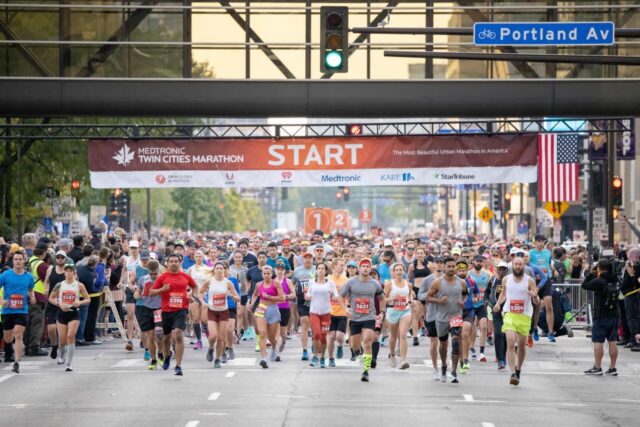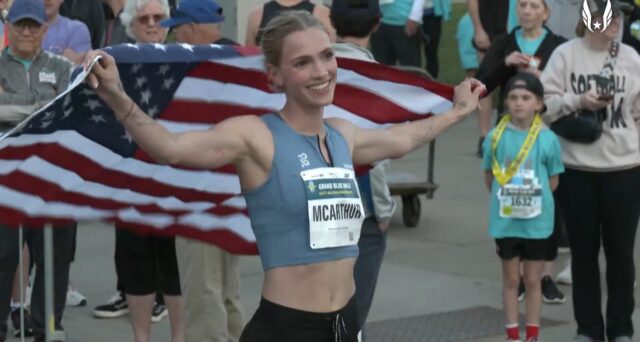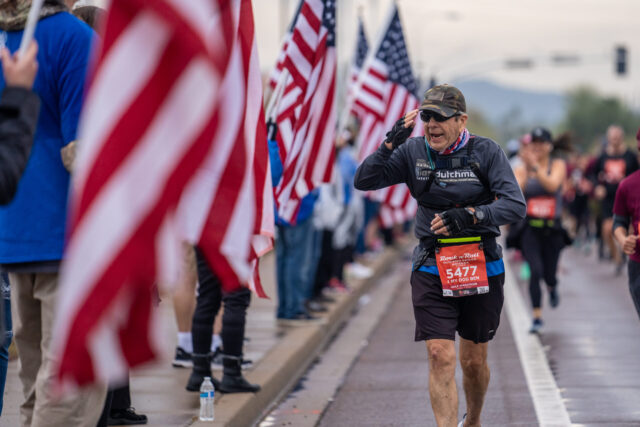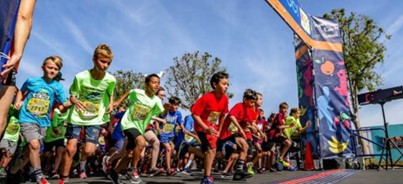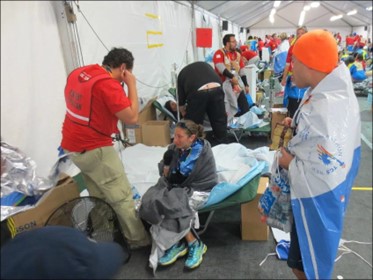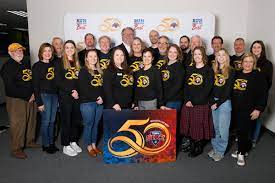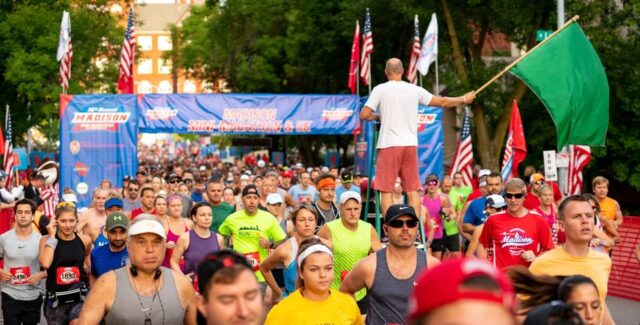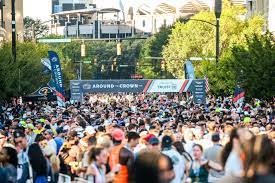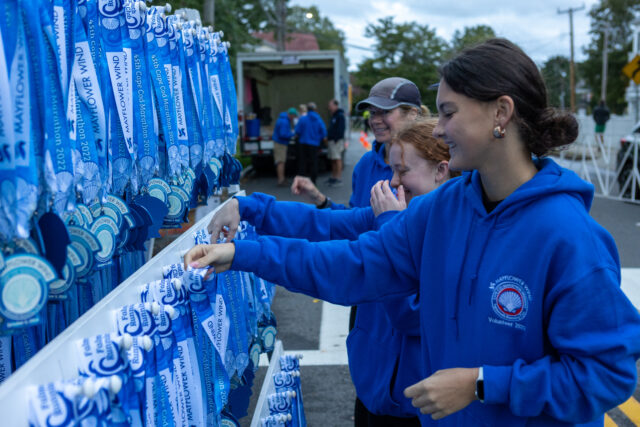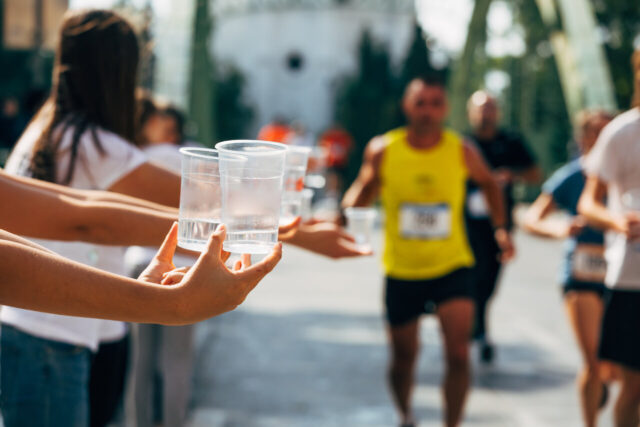Volunteer Insights from Event Management Experts Part One: Recruitment, Training and Diversity
Running events are more than just races; they're showcases of athleticism, community spirit, and logistical precision. Behind the scenes of every successful marathon, half marathon or 5K are the unsung heroes – the volunteers. From assisting with packet pickup to handing out water at aid stations, volunteers are the lifeblood of these events, ensuring unforgettable experiences for participants and an invaluable assist to operations personnel.
To uncover the secrets of effective volunteer coordination in the realm of running events, Running USA’s Leah Etling had the privilege of sitting down with four seasoned experts in the field. Donna Finney, the Director of Volunteer Operations for the New York Road Runners; Samantha Furlong, Manager of the Volunteer Program for Chicago Event Management; Kristin Lide, Senior Manager of Community Engagement and Volunteers for Atlanta Track Club; and Alivia Nelson, Program Director for Grandma’s Marathon, graciously shared their insights and expertise during our hour-long conversation.
Recruitment, retention, communication, and coordination emerged as recurring themes throughout our conversation. These pillars form the backbone of any successful volunteer program, and our panelists offered invaluable perspectives on how to strengthen each aspect.
Editor’s note: transcript has been edited for clarity. View the full conversation video here.
Leah Etling: What are some tested and effective strategies for recruiting and managing volunteers for events like road races?
Kristin Lide: We have a plethora of events at Atlanta Track Club. And one of the largest ones is the AJC Peachtree Road Race, which has about 50 to 55,000 participants. We need about 3,000 volunteers for this specific event. One of the things that we like to do, of course, people do it altruistically, but we like to say thank you and give additional incentives. We have special t-shirts and merchandise through our partner adidas. We also partner with several colleges around the Atlanta area. A lot of folks like to come out and serve their hours, whether it's through work, through school, or any extracurricular things that they're doing. A lot of it is just touching base with the community. Figuring out who it is that we're wanting to touch base with and getting them out on race day, getting them all signed up and making sure they're ready to do what we need to do for race day.
Donna Finney: At New York Road Runners, our biggest event is the TCS New York City Marathon, and we will have 10,000 volunteers for one week. Our biggest recruitment strategy is opening up marathon registration the day after the marathon. We call it Marathon Monday, and we all have pins that say: “Sign up on November 4.” In other words, we're ready to go. We've been planning for months before even other people even think about the marathon. And it's a really successful strategy for us.Another process that has been really super-efficient for us is our volunteer surveys. Of course we want to make sure that we're getting the feedback from our folks, whether it's good or bad. But we do ask them: Are you excited? Are you looking to get more involved? aFrom that we were able to plug in people that are looking to step up into a leadership position or join one of our community volunteer programs. Those are two of our most successful volunteer recruitment strategies.
Alivia Nelson: At Grandma's Marathon, we need about 4,000 volunteers for our event weekend. Duluth is a city of about 85,000. And so just when you talk about percentages and how you're going to find that many people kind of in a smaller area, I always say to cast a pretty wide net. We always look for volunteer groups -- it's always easier to fill those slots with a club or a sports team instead of going one by one. I'm always shocked sometimes about the different groups that are interested in volunteering, so don't assume that a group wouldn't be interested before you even ask. We always also like to use our existing network of volunteers to kind of do some of that outreach. They're probably your best ambassadors, they come back year after year and have a great time and can kind of speak to other people. I always say the best way to get a volunteer is just to ask, and so never count anybody out.
Samantha Furlong: I would agree with Alivia in that one of our most effective recruitment strategies is to work with volunteer groups. You can put that responsibility on your group leader to recruit their groups, monitor group registration, and manage expectations with their volunteers while communicating with just that group leader. So that definitely alleviates some of the volunteer recruitment.At the Bank of America Chicago Marathon, we work with about 200 volunteer groups, we work with some groups that are as small as 10 volunteers, and some as large as almost 200 volunteers. And they can come from high schools, college universities, nonprofit organizations, or run clubs. And we do offer a post event donation to groups of 20 or more to help incentivize group registration at our events.How do you ensure that volunteers are adequately trained to handle various tasks, such as course marshaling, aid station support, and packet pickup?
Donna Finney: Oh my gosh, I love training. It's a big focus of ours in 2024, actually. Two things that we utilize: last year for the New York City Half Marathon, we were faced with super, super cold weather, and we wanted to over educate people on how to make the best out of their day. And from that we brought out what we call ‘What to Expect on Race Day.’ This is a virtual seminar that is offered to all of the volunteers. We break it down from what to expect in terms of communication, how they've been checked in, and even very detailed orientation regarding their role, then, of course, on the race side, they're going to get that additional training, but it really sets them up for success. And we found that to be a really successful model. Additionally, in our communications, we send out a race day FAQ.We truly believe that an informed volunteer is a happy volunteer. We put together all of the questions or the runners are going to ask, ‘where's the start line?’ to ‘how do I check my bag?’ to ‘how do I find my family and friends?’ All that information is shared with them in email communications as well as provided on site for them. Those are two ways that we've been trying our best to train and educate our volunteers.
Alivia Nelson: I think that repetition is really key just because different volunteers want to get their information in different ways. Some really want to read an email ahead of time and find out everything before they get there. And some people maybe don't have the time for that or would like to just learn on site.I think the more you can repeat it, it's really helpful for them. Another thing we're trying to focus on at Grandma's Marathon is training those captains who are maybe helping you in an area and delegating some of those tasks, not just how to manage the water station, but also what some of those best volunteer practices are, just because it's probably overwhelming for them to just like how it's a tricky thing for all of us and making sure those captains know what the best practices are in terms of check in in terms of informing volunteers and giving them breaks to.
Samantha Furlong: Here in Chicago, we practice ‘just in time’ training with our volunteers. To be able to successfully do this, we spend a lot of time training our leads in advance of race day so that they are well prepared before their volunteers arrive and ready to learn about their role on race morning. And then we also create an information guide that gets emailed to all of our volunteers in advance of race weekend, encouraging them to review it. It does contain some high-level event information and maps, but the volunteers can still expect to receive that specific ‘just in time’ training when they arrive on event day. And while we do all this, we realize that there's an opportunity for our team to enhance our training materials and find more ways to make our volunteer workforce feel prepared when they show up on race day.
Kristin Lide: Donna, I love that saying, that an informed volunteer is a happy volunteer. That is so true.Like every organization on this call, we definitely focus on communication. If volunteers don't know what to do, if they don't know where to go, we are going to be in a kerfuffle. We focus highly, on creating that volunteer information webpage that Samantha was just talking about with connecting with our crew chiefs, which are, you know, our lead volunteers in the area, making sure that they distribute the information that's needed. We have calls with our expo volunteers and will have a specific call for our start and finish course volunteers. It's just communicating as much as possible to inform them about what to expect on that day.Also, everybody knows Atlanta is hot. We try to do as much as we can to keep them cool on our course, or during the wintertime, providing hand warmers, those kinds of things.
Leah Etling: Let's discuss some of the measures that each event takes to make sure that there is diversity and inclusive inclusivity among the volunteer teams, that really reflects everybody who's participating in the race, and also the communities where the race is taking place. Samantha, I know that Chicago Event Management works really hard with the neighborhoods along the routes of your events to make sure that there's inclusivity and participation. Why don't you kick us off on this one?
Samantha Furlong: We have put a lot of effort into not only looking at our participant database, but also our volunteer database, to make sure that people that are coming to our events are representative of the communities that our events run through. And we've actually done that by adding some additional questions to our volunteer form, which is a really simple way to be able to look at your volunteer data and be able to analyze who your volunteers are, where they are coming from, just by adding an field for your address, asking about race, race and ethnicity, asking for gender identity, and making sure that you have a really diverse volunteer pool for your events, and setting some goals and how to enhance that if you're not quite there. That's been a big focus of ours.At the Shamrock Shuffle, just a couple of weeks ago, we had the opportunity to work with the Special Olympics as a volunteer group at packet pickup. It was a really great opportunity to get some neurodivergent athletes involved with not just running our events but volunteering for them as well. And we're able to set up some time with them to understand their needs for the event and create a really positive environment for them to come join us in a volunteer role.
Kristin Lide: We really try to reach out to a lot of the community. A lot of it is through word of mouth. We have partnerships with Black Men Run, Black Girls Run, Latinas Running and other organizations that can reach into their network and create that diverse pool within the volunteer network itself.We oftentimes find ourselves at different conferences, and sometimes literally just going onto the streets. We will visit areas of Atlanta that might not have heard about any of our races or run clubs and talk to local leaders to pull for both our participant and volunteer base.
Donna Finney: Something I love about New York City is it is just such a diverse city. We are very grassroots when it comes to our recruitment of volunteers for the marathon recruiting locally at each fluid station.One thing that we have been doing in the past several months in communications is taking reasonable requests. We're educating ourselves and understanding what our volunteers are needing because they are already here, and also falling in line with ADA (Americans with Disabilities Act) needs. Someone might let us know that they need a guide or a translation, or it could even be light sensitivity, so they need to be put in the shade. We don't know until they tell us what they need. We're definitely learning in this area, and we're really focused on and doing better. There's a lot of learning moments on how to best support everybody so that they can be out there having just as much fun as the person next to them.
Alivia Nelson: A few things Grandma's Marathon is doing is just looking at some of those barriers that exist for different groups, whether it's transportation, or the timing of our events, or how long maybe our volunteer shifts are. Depending on what your job is, it might not allow you to participate, or depending on where you live, it might be a 30-minute drive from your house. We are looking at what we can do to make volunteering more accessible.I think sometimes just taking a step back and saying, is there something that is difficult? It benefits everyone when you look at those barriers, and it diversifies your volunteer base, but it also makes your existing volunteers happier and improves their experience too.
